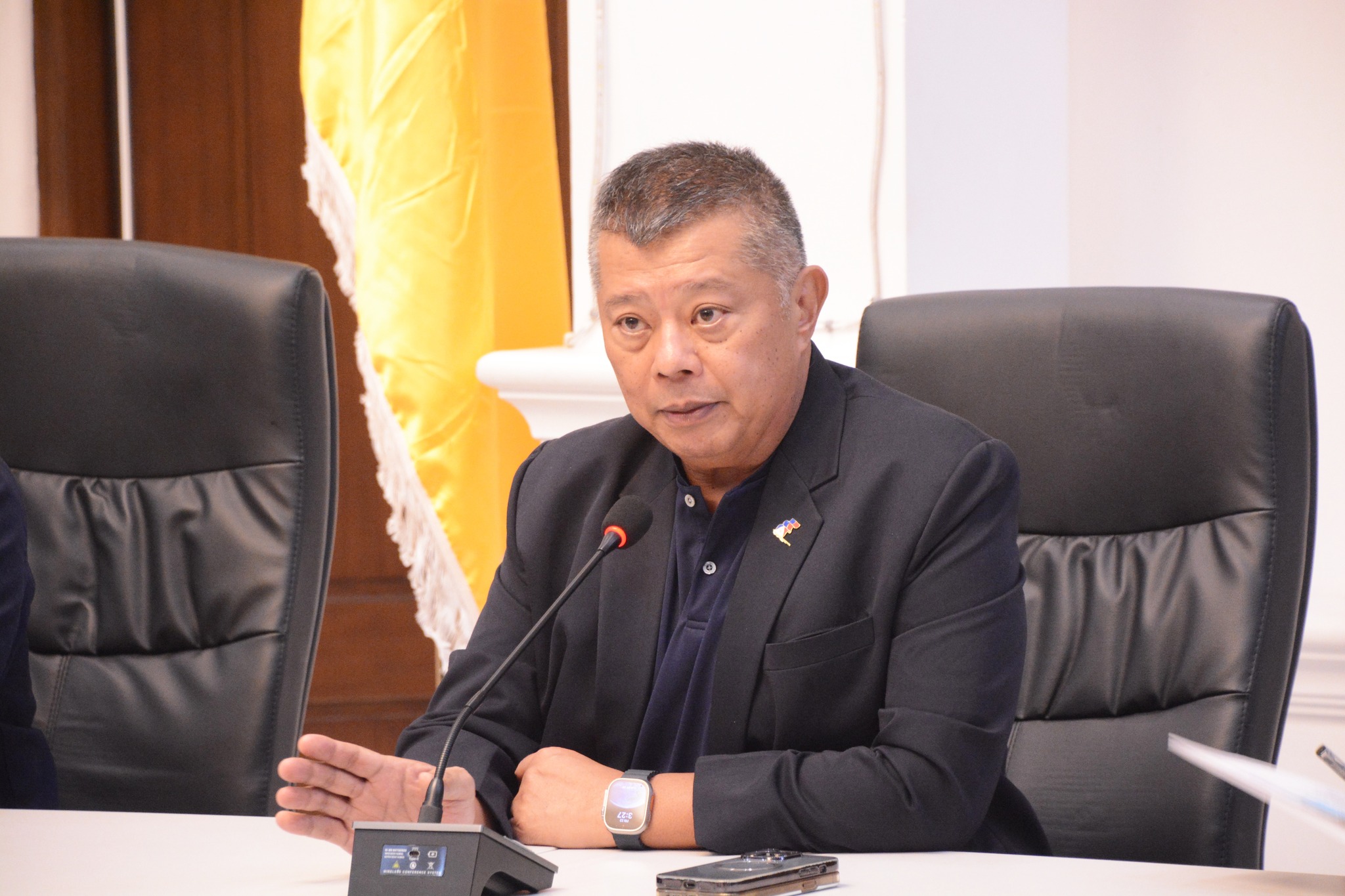
DOJ Sec. Jesus Crispin Remulla —Photo from DOJ Facebook page
MANILA, Philippines — Justice Secretary Jesus Crispin Remulla on Wednesday said that the International Criminal Court (ICC) would have to secure authority from a Philippine court before it could order the arrest of those responsible for carrying out former President Rodrigo Duterte’s brutal war on drugs.
According to Remulla, representatives of the International Criminal Police Organization (Interpol) would also have to follow a similar procedure should they be tasked with implementing the arrest warrant that would be issued by the ICC.
He made the remarks during a Senate hearing on the proposed P37.8-billion budget for the Department of Justice (DOJ) and its attached agencies in 2025.
READ: ICC prosecutor tags Bato dela Rosa, 4 PNP execs as ‘suspects’
The justice secretary, however, did not specify the particular legal processes the ICC and Interpol had to comply with.
“If they want to come here to implement the arrest warrant that the ICC would issue, they will have to go through our court system,” said Remulla, replying to questions from Sen. Grace Poe, who led the budget briefing as Senate finance committee chair.
“Let’s say the ICC issues a warrant of arrest and the Interpol wants to enforce it here, they will have to go to our courts for them to proceed and avoid facing charges. That’s our view,” he said.
According to him, such action to “enforce a warrant, an action to enforce a judgment, needs to undergo our court system.”
“So we will not interfere because that’s the job of the Interpol if they really want to go after the accused,” Remulla added.
Asked again by Poe if the ICC has to seek the local court’s approval to determine the validity of the warrant it issued, the DOJ chief said: “It depends on [what] the Supreme Court thinks [of it]. There are some things that the Supreme Court would be looking at.”
Remulla said that while the Philippines was no longer a member of the ICC, the high court would have to rule if “they will actually allow a warrant to be served in our country from an international tribunal.”
After previously arguing that the government was no longer bound to abide by the ICC’s arrest order since the Philippines had withdrawn from the Rome Statute creating the international court, he said the DOJ and other state agencies cannot prevent the tribunal from proceeding with its investigation of the drug war killings.
“Because of the technology that’s available to all of us, it is so easy for them to go on Zoom to [talk] with all these witnesses who are here in the country. And we cannot stop them from doing that. Freedom of communication, I think, is paramount when it comes to this,” he said.
Solicitor General Menardo Guevarra, who was Remulla’s predecessor, clarified that the ICC needed no approval from a local court to implement potential arrest warrants against individuals implicated in the drug war atrocities.
Bail application
Guevarra explained that arrest warrants are issued by the ICC Pre-Trial Chamber, not by local courts, as stipulated in the Rome Statute.
“The ICC prosecutor will then request the Philippine government for assistance in serving the warrant of arrest here through the Philippine National Police, National Bureau of Investigation, or any law enforcement agency,” Guevarra said in a Viber message to the Inquirer.
He said that individuals subject to an ICC arrest warrant may challenge it in a local court.
“But if the warrant is actually implemented, the subject may apply for bail in a local court,” he added.
Remulla had said that the government would not block Interpol if it sought assistance to execute the arrest warrants.
“We are not in the business of blocking any movement of Interpol, unless a policy is laid out, which of course will go against our international commitments,” Remulla said on Aug. 1.
No interference
He acknowledged that arresting individuals named in an international warrant could be “very tricky” because the Philippines remains a member of Interpol, which cooperates closely with the ICC.
Guevarra also told reporters that the government would not interfere with the ICC prosecutor’s investigation of the drug war and confirmed on July 30 that the ICC had sought assistance from the government to interview former and current high-ranking police officers allegedly involved in thousands of deaths during the bloody campaign.
He said the Philippines “has no legal duty to lend any assistance” to the ICC prosecutor in his investigation. “But the Philippine government cannot stop him from proceeding any way he wants,” he said.
ICC Prosecutor Karim Khan is investigating alleged “crimes against humanity” committed during Duterte’s antidrug campaign.
‘Concrete involvement’
Guevarra said that the Hague-based tribunal could interview persons of interest via online platforms, phone, email, or in person, provided they consent.
“But the ICC prosecutor cannot expect that the Philippine government will facilitate it for him,” he pointed out.
Former Sen. Antonio Trillanes IV shared a confidential ICC document identifying former Philippine National Police chief and now Sen. Ronald dela Rosa and four other retired and current police officers as having “concrete involvement” in the systematic killings under the antidrug campaign.